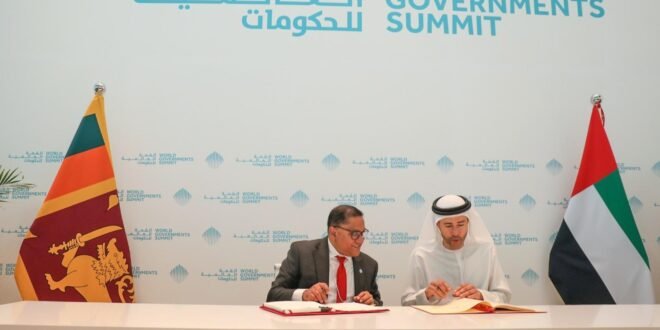Zimbabwe and UAE Strengthen Healthcare Collaboration
Zimbabwe has taken a significant step towards improving its healthcare system by signing a Memorandum of Understanding (MoU) with the United Arab Emirates (UAE). This agreement is designed to enhance healthcare systems in both countries through mutual cooperation, focusing on areas such as primary and specialist care, emergency preparedness, health financing, workforce development, and the integration of technology to improve service delivery.
The MoU was approved by the government during a recent cabinet meeting and was discussed in detail during a post-cabinet media briefing. Information Minister Jenfan Muswere highlighted the importance of the agreement, emphasizing that it aims to foster growth, development, and improvement in healthcare systems across both nations. The collaboration is based on principles of respect, equality, and shared benefit.
Key Areas of Cooperation
The scope of the cooperation includes several critical areas within the healthcare sector:
-
Primary Care: This involves collaborative efforts in reproductive, maternal, neonatal, child, and adolescent health, along with immunization programs. These initiatives are essential for ensuring the well-being of vulnerable populations.
-
Secondary Care: This area focuses on specialist care and patient referral services, including laboratory services, forensic pathology, and blood services. Enhancing secondary care can significantly improve access to advanced medical treatments.
-
Health System Resilience: A key aspect of this collaboration is preparing for and responding to public health emergencies. This includes building robust systems that can handle crises effectively.
-
Health Financing: Both countries will explore innovative funding models, share financial expertise, and optimize resource allocation to achieve better health outcomes. This is crucial for sustainable healthcare development.
-
Human Resources: The focus here is on developing and managing healthcare professionals. Training and retaining skilled personnel are vital for maintaining quality healthcare services.
-
Health Technology: Leveraging technology to improve healthcare delivery, enhance patient care, and streamline services is a central goal. This includes the use of digital tools and telemedicine to reach more patients efficiently.
Challenges in Zimbabwe’s Public Hospitals
Despite these positive developments, public hospitals in Zimbabwe continue to face numerous challenges. Shortages of basic medical supplies, deteriorating infrastructure, and underpaid staff have led to a significant brain drain and low morale among healthcare workers. These issues have made it difficult for hospitals to serve patients effectively, highlighting the urgent need for investment and reform.
In addition to the MoU with the UAE, the government recently signed separate agreements with China and Belarus to refurbish Parirenyatwa Hospital, the country’s largest referral hospital. These efforts demonstrate a broader commitment to improving healthcare infrastructure and services.
Future Prospects
The collaboration between Zimbabwe and the UAE represents a promising opportunity for both nations to learn from each other and implement best practices in healthcare. By working together, they can address common challenges and develop sustainable solutions that benefit their populations.
As the healthcare landscape continues to evolve, it is essential for countries to prioritize partnerships that promote innovation, efficiency, and accessibility. The MoU with the UAE is a significant milestone in this journey, and it sets the stage for future collaborations that can lead to long-term improvements in public health.
 Info Malang Raya Its All About World News
Info Malang Raya Its All About World News




